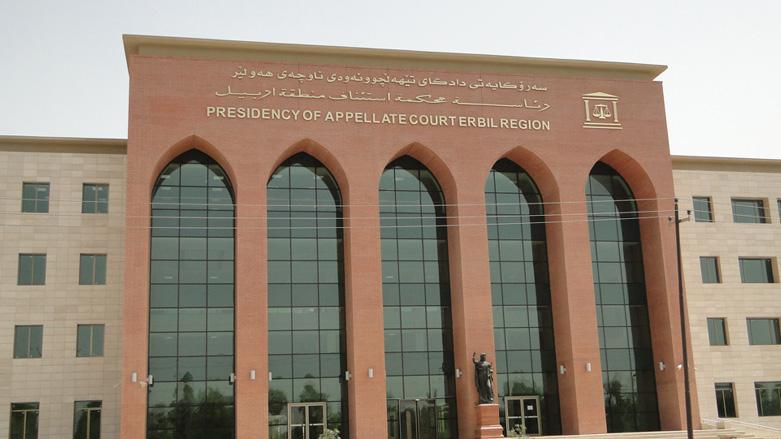


In shareholder disputes, particularly in closely held companies, judicial custody (الحجز القضائي) is sometimes invoked by claimants seeking to protect what they allege to be endangered rights. However, Iraqi law treats such measures with caution, especially when they interfere with company operations or existing corporate structures.
At Lead Counselors, we recently represented a company in Erbil where such a claim was filed by a shareholder but ultimately rejected by the court following our legal arguments.
The Dispute
The case involved a company that owns and manages a factory within the Kurdistan Region of Iraq. One of the shareholders filed a judicial custody lawsuit against the company, requesting that the court appoint a judicial custodian to take control of the business. The claimant alleged that the company had failed to pay its profit shares for the years 2019, 2020, 2021, 2022, 2023, and 2024.
At the same time, the claimant had already filed a separate lawsuit demanding the payment of those very same financial shares. Despite that, he attempted to impose judicial custody under the claim that his rights were at risk.
Our Legal Objection
Our legal team at Lead Counselors objected to the judicial custody request, arguing that:
- The claimant’s financial dispute was already subject to litigation.
- Judicial custody, by law, is a protective emergency measure, not an enforcement tool for monetary claims.
- Imposing custody would unjustifiably interrupt the company’s business, including employment and production activity.
Legal Basis – Civil Procedure Law
Under the Iraqi Civil Procedure Law No. 83 of 1969, specifically:
- Article 231: Judicial custody can be ordered when there is a serious and imminent risk to the property in dispute, and the property is co-owned, under contention, or misused.
- Article 232: The court has full discretion to reject such a request if the conditions are not met or if the claimant has another route to protect their interests.
We emphasized that since a financial claim was already being reviewed by the judiciary, there was no urgent threat or damage to left imposing custody.
Legal Basis – Companies Law
Additionally, we relied on Article 102 of the Iraqi Companies Law No. 21 of 1997 (as amended), which clearly states:
"The managing director shall undertake the management of the company in accordance with the law and the company’s contract and shall implement the decisions of the general assembly or the board of directors. The managing director shall be responsible for all acts and operations related to the company’s administration, except those that are restricted by the company’s contract or by decision of the general assembly."
This article makes clear that the managing director, once appointed by the shareholders through a certified company meeting, holds full authority over company affairs. His legal powers cannot be arbitrarily reduced or suspended by a court without breaching the company’s corporate autonomy.
Thus, we argued that the claimant’s request would amount to the court interfering in internal management decisions, including the authority given to the managing director by the company’s partners, a violation of the core principle of company governance.
After reviewing the full case file, corporate documents, and relevant laws, the Erbil Court rejected the request for judicial custody. The court confirmed that:
- The claimant already had another case to resolve the financial claims.
- There was no immediate risk requiring emergency judicial intervention.
- The company’s internal structure, especially the managing director’s authority, could not be overridden based on such a claim.
As a result, the claimant lost the case, and the court preserved the company’s operational and legal integrity.
Key Takeaways
This case is a clear illustration of how the courts in Iraq and the Kurdistan Region apply both the Civil Procedure Law and Companies Law to protect companies from procedural abuse.
Judicial custody cannot be used as a tool to pressure companies or bypass the proper channels of shareholder disputes. Courts will reject such claims when:
- There is already an active lawsuit for the same issue.
- No urgent risk to assets or corporate stability exists.
- The request would unlawfully interfere with the authority of a lawfully appointed managing director.
Lead Counselors' Role
We were honored to represent our client in this matter and to successfully defend its rights using sound legal reasoning and strong litigation strategy. Our team of experienced litigators continues to support businesses across Iraq in protecting their legal standing and operations, especially in shareholder, governance, and procedural disputes.
For legal advice or support in corporate litigation, contact Lead Counselors, your trusted legal partner in Erbil and beyond.

- Legal Advice
- Corporate & Business Services
- Litigation & Dispute Resolution
- Investment & Foreign Business Licensing
- Licensing & Government Liaison Services
- Industrial & Project Licensing
- Tax & Financial Law Services
- Contract Drafting & Review Services
- Employment & Labor Law Services
- Intellectual Property Protection
- Real Estate & Property Law Services
- Criminal Defense & Prosecution
- Debt Collection & Enforcement Services
- Banking & Financial Services
- Residency & Visa Services
- Notary & Authentication Services
- Translation Services
- Background Screening and Due Diligence
- Family & Personal Legal Affairs
- Strategic Development & Advisory Services
